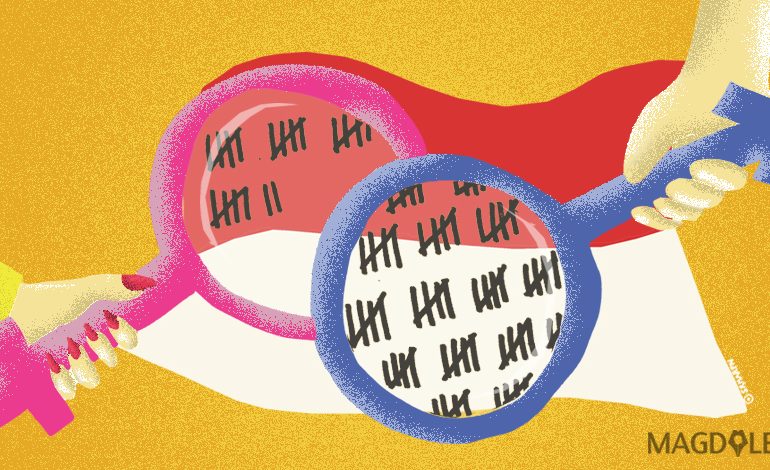Why ‘Be Grateful’ isn’t Always the Best Suggestion

Sharing my own problems (without holding back) is a bitch and a half. I realized this as I tried to work on my issue for my first therapy session, just after I felt the strong call of the void. I was not exactly shy per se, although I was quiet by nature. I was wrecked by my own anxiety that my feeling was not exactly valid. This swirl of emotion might only be a shade of something far greater, and “realer”, so to speak. I feared that it was only me acting up. Perhaps I am having a “temper tantrum”, so I could play victim. This is despite the fact that I had no right to do such a thing.
I thought about the previous days, when I told my mother about my decision to go to therapy, with much tears. She was pretty supportive overall. Still, I recalled her saying this somewhere during our conversation: “Still, you should be grateful: there is always someone worse off.”
The mantra seemed to hang on my head, floating just beneath my consciousness.
I didn’t bring this up to criticize my mother; she is a lovely – albeit flawed – woman who tries her best to work with her jerkbrain-riddled daughter. She did try to support me and help me, and I appreciated the hell out of it. I brought this moment up because how this cliché mantra has seeped so thoroughly in our society’s mindset. Even when I talked about my decision to go to therapy – even when my mother expressed her support to the said decision – the ‘there is always someone worse off’ mantra managed to slip in.
This shouldn’t come off as a surprise. We, as society, are accustomed to bring up the idea of “being grateful” by comparing our situation to that which is worse. There is always someone’s worse off, so we shouldn’t whine too much. I am not alone in fearing of whining too much. My good friend, despite admitting to feeling distracted in her life thanks to her anxiety, decided not to go to a shrink. She felt that she didn’t have the right to “whine” and “spend a ton of money” when there are a lot of people suffering anxiety more severely.
This isn’t exactly a one-off case, too. Scrolling through my social media account, I read a lot of people would start their emotional rants with “I am sorry for bothering you”, although we know that social media has always been our go-to medium for cathartic ranting.
A quick search on Google reveals that this is not exactly a weird phenomenon across the globe; I found many articles on the international media discussing it. Apparently, many societies have their own similar mantra whenever someone is trying to share their not-so-positive feelings.
Still, I think there is another dimension in the way Indonesian society evokes the idea of “being grateful.” Indonesia is a deeply religious society after all, with 98.8 percent people believing religion to be important, according to a 2016 research. The teaching of the majority religion in Indonesia, Islam, especially emphasizes the important of being grateful. At least, that is how I experienced learning Islam throughout my whole life.
Preachers spoke over and over again about being grateful, even if you’re in a crisis. They talked about how there are a lot of our Muslim brothers in Palestine, for example (I know, cliché) are in a far worse shape than us. Or how we are still “healthy and normal”, compared to our disabled brothers. This is as if we are more superior than our disabled brethren, a presumption that has been challenged by many people who are differently abled. Over and over, the ustadz stress o that we have zero reasons not to be grateful with all the blessings that our God has provided us. If you don’t feel grateful for your current life, you’re committing sin to your God.
This sort of thought, although coming from good intentions, can be quite dangerous. It is certainly an attempt to help you focus on the brighter side and to shift your perspective just a bit. Yet, this suggestion of comparing yourself to other people with worse situation can lead to the idea of “dismissing” the issue at hands. This sort of mantra can minimize your own emotion. Worse, it might send the wrong message that your issue was not exactly important or even valid because other people face an even more difficult situation. You are not supposed to be entitled to your distress.
So you suppress the feeling and you don’t address your actual distress, which brings negative impacts towards your own mental health.
Studies have shown that emotional invalidation that I described above can impact your own well-being negatively. As this article suggested, emotional invalidation could make you feel more anxious. Moreover, various other mental issues, such as depression or borderline personality disorder, are more likely to happen when emotional invalidation occurs.
Furthermore, this sort of comparison ignores the fact that everyone has its unique way of processing and handling problems and emotions. Some people may be more easily affected by a certain tension and pressure, while others may find it more bearable. Some may not be accustomed to a certain sort of problem, so they may react more strongly compared to others. Some may cope with expressing their problems in a more outward way (like on social media), while some prefer a more “quiet” way to deal with their own issues. Except when it caused harm to others, the way we feel and deal with emotional distress should not be dismissed.
Accepting and dealing with your own negative emotion, research shows, is a key to your own well-being. It is always better to feel and deal with your emotion than to set it aside, creating a ticking time bomb.
Isn’t that so?






















